Each year to prepare for the fall feast and the prophetic foreshadowing of the coming of the King all of Israel would begin repenting from the beginning of the month of Elul for 30 days up to Rosh Hashanah/Yom Terumah and then 10 final days leading up to Yom Kippur.
Historically, this tradition comes from the 40 days, Moses pleaded with God at the top of Mount Sinai to forgive the Jewish people for worshipping the Golden Calf. That 40-day period began on the first day of the month of Elul and culminated on Yom Kippur, when Moses came down with the second set of tablets, signifying that God had forgiven the Jewish people.
The final 10 days between Rosh Hashanah and Yom Kippur (Day of Atonement) are called the Days of Awe, and are days in which Jews engage in repentance, prayer and acts of charity. According to Jewish tradition, the righteous (tzaddikim) are written into the Book of Life, while the wicked (resha’im) are written into the Book of Death. Most, though, are not yet written in either, thus, are given the 10 days between Rosh Hashanah and Yom Kippur to repent. Thus, there is significant introspection among Jews during these 10 days.
The great theme of Rosh Hashanah is repentance, and the overarching theme of the high holiday season is forgiveness. The first day of Rosh Hashanah begins a ten-day season of repentance, often called the Ten Days of Awe by the Jewish people. These ten days conclude with the observance of the Day of Atonement.
Most Jewish people understand that repentance is the path that leads to salvation and the forgiveness of sin, which is secured at the closing moments of Yom Kippur. Though it is difficult to explain the difference between the Jewish and Christian understanding of salvation, the Jewish community stresses forgiveness far more than personal salvation, especially as salvation is understood by most Christians. Jewish people are not as apt to think about personal salvation or a secured future beyond the grave in the same way Christians do.
However, Jewish people think about forgiveness during this time of year and are usually eager to repent before God and reconcile with whomever they may have offended. But forgiveness is viewed as temporary—needing annual renewal—and received not only on the basis of God’s grace, but also on our repentance and willingness to be obedient to His Law, which is found in the Five Books of Moses. At least this is the traditional Jewish teaching on the subject.
The Ten Days of Awe, or the Ten Days of Repentance, are observed during the time between Rosh Hashanah and Yom Kippur. Jewish tradition calls upon us to ask for forgiveness from those we may have offended during the past year and to forgive others for their offenses against us in anticipation of receiving God’s forgiveness at the conclusion of the ten-day period.
Yom Kippur reminds us that God is always here for us; He loves us and wants more than anything to have a relationship with us! And when we mess up – and we all mess up sometimes – we have the opportunity to make things right. Totally AWE-some!
We hope this Special study on the 10 days of awe blesses you in your spiritual understanding and growth!
As we are solely supported by your love offerings, please consider supporting this ministry for the continued spread of Truth by donating to http://paypal.me/calledoutbelievers Thank you!
Write us and let us know what you think! We hope this teaching blesses you in your spiritual understanding and growth! Also if you have a need for prayer, please write us and let us know how to pray for you and we feel privileged to be intercessors in prayer for all our worldwide family!
Don’t forget to…
– GO to our YouTube channel and…
– LIKE the videos
– SUBSCRIBE to our channel
– SHARE our YouTube channel
– FOLLOW us on Instagram
– FIND us on Facebook, as well as…
– POST this website: https://www.calledoutbelievers.org with your friends on Facebook!
Study by Rabbi Isaac. © Assembly of Called-Out Believers.
Website: CalledOutBelievers.org. Use by Permission





One Comment
Love your teachings